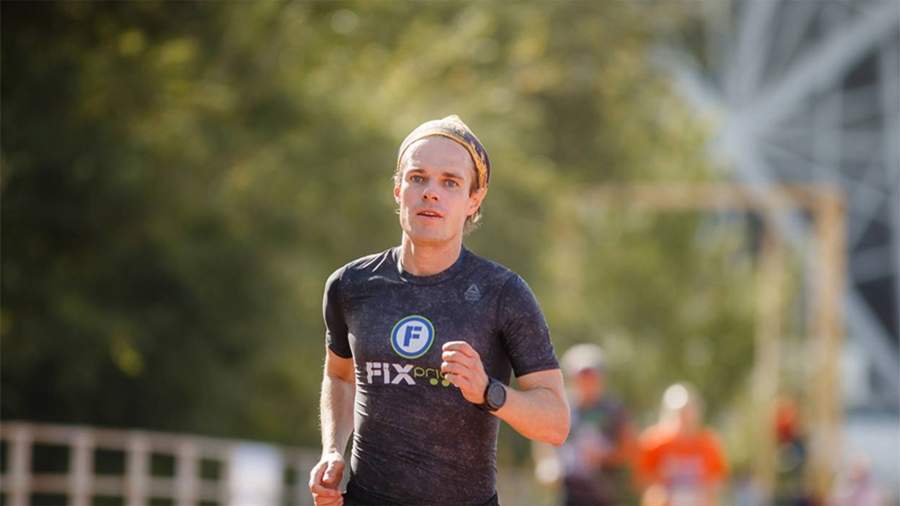"I slept for twelve hours in six days"

On May 4, Russian athlete Ivan Zaborsky won the famous ultramarathon "6 Days of France" by overcoming 1,047,554 km in six days, which is a new world record for six-day races. Ivan exceeded the previous achievement set in 2024 by Belgian Mathieu Bonn by 2 km and 35 m.
What is especially pleasant is that our athlete finished with the Russian flag in his hands. Zaborsky told Izvestia and Sport-Express in an interview about how running developed and how preparations for such disciplines are going.
I could have gone to the ice cream store.
— How did it go?
— It was hard because it was the first time I participated in a competition of this format. It rained on the first and sixth days, and the heat was 25-26 degrees from the fourth to the fifth.
— What was the rest schedule?
— In principle, at any moment you can go to the cabin, to the tent, relax, eat, sleep there.
— Have there been moments of crisis?
— At night, probably. When this happened, I just went to rest, even 15 minutes of sleep helped. Well, the last day, when it was raining, it was already, of course, hard.
— You didn't sleep for 15 minutes all six days, did you?
— During the day, when it was hot, I slept or rested for an hour and a half, then returned to the track again. I slept for 15 minutes at night, for a total of 24 hours, and I got 2-2.5 hours of sleep. For all six days, I slept for about 12-15 hours.
— Usually, with such loads, there are problems with the intestines and stomach.
— There were no problems at all. I tried to alternate sports nutrition — gels and isotonics — with regular meals. The organizers served hot meals three times a day, including breakfast, lunch, and dinner. Plus, we bought something ourselves: sweets, buns. There are shops nearby, you could go and buy ice cream, water, juices, whatever you need.
The same kind of stress puts pressure on the psyche
— When did you realize that you would not only win, but also set a world record?
— I set my sights on the record initially, I walked a few days over schedule, 10-15 kilometers, but the understanding that everything would work out appeared, of course, closer to the finish line. There were no failures.
I would like to thank my partners for this success, who provide comprehensive support. I am not a professional athlete, I live a normal life, and running is a strong, but still hobby. Therefore, I regularly undergo checkups in the clinics of my partner, Medscan Group of Companies. I plan to hold the next race in the fall of 2025.
— You said that this was the debut start in such a multi-day format. What was the longest before that?
— Fidipidis Ras in Greece. We fled from Athens to Sparta and then returned back. It was last year, 490 km with a set of vertical ascents, it seems, 6.5 thousand meters.
— How long have you been doing this?
— I started running in 2014. The first daily race was held in 2015. Until 2023, there were many ultramarathons: "Spartathlon" (246 km) four times, "Milan – Sanremo" (285 km), "Ultrabalaton" (215 km). Starting in 2023, normal running volumes in the region of 500 km/month have already begun in training, and the results immediately began to grow.
— When did the idea of this record come up, and how did you prepare?
— Ira Masanova (Russian champion and record holder in daily running. — Izvestia) She said that she would take part in a six-day race. I originally planned to run the three-day World Championship, but it was postponed to 2026. That's why I decided to start in France, for six days. I contacted the organizers at the end of 2024 and have already started preparing since the beginning of this year. January and February were, one might say, exhausting, in March and, especially, in April, it already reached serious volumes.
— How much for April?
— A thousand kilometers. 90% of this was at a steady pace, a little faster than five minutes per kilometer, but there were speed intervals and mountain running.
— Why do you need speed intervals when you are preparing for an ultramarathon race?
— The same type of stress puts pressure on the psyche and increases the risk of injury. It's better to diversify your workouts and connect other muscles. Besides, I plan to run in other formats, not so long. We need slides and intervals.
Achievements of Ivan Zaborsky:
— Milan – Sanremo Ultramarathon (UMS), Italy, 285 km, 2018: victory and current track record of 29 hours 46 minutes;
— Spartathlon, Greece, historic run from Athens to Sparta, 246 km, 2016-2019: four—time finisher, best result - 25 hours 36 minutes (sixth place). The best time among Russians.
— 13-hour Self-overcoming run, Moscow, July 2023, 165 km 163 m: a track record (run with a 20-year history)
— Volgograd Region 24-hour Running Championship, October 2024: the final result is 284.913 km, exceeding D. Zhalybin's Russian record (282.282 km) set in 2006, currently the best result in the world and the eighth in the history of daily running.
— victory in the Authentic Pheidippides Run, November 21-25, 2024: the distance is 490 km, and the total climb is approximately 6.5 thousand meters.
Переведено сервисом «Яндекс Переводчик»
